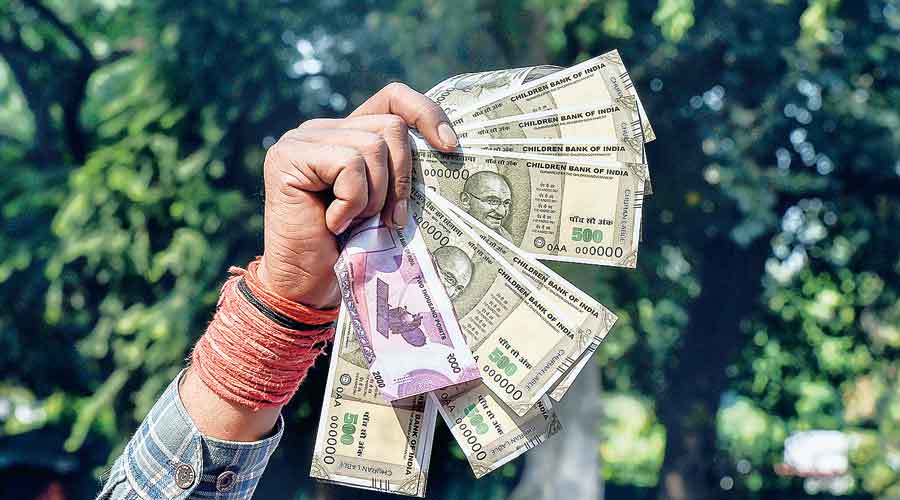The Supreme Court said on Wednesday it will examine if the challenge to the Centre’s 2016 demonetisation decision has become a mere “academic exercise”, and posted it for consideration on October 12.
As the hearing commenced, a constitution bench headed by Justice S.A. Nazeer wondered if the matter survives consideration at this stage. Solicitor-General Tushar Mehta, appearing for the Centre, submitted that for all practical purposes the matter does not survive for consideration.
However, the case can be examined as an academic exercise, he said. “A five-judge bench for academic exercise when we are already burdened with such a large amount of pendency?” the court wondered.
“We will fix it for hearing on October 12. We will examine if it has become academic and if it can be heard at all,” the bench, also comprising Justices B.R. Gavai, A.S. Bopanna, V. Ramasubramanian, and B.V. Nagarathna said.
The top court was hearing a batch of 58 petitions challenging the Centre’s November 8, 2016 decision to demonetise currency notes of denominations of Rs 500 and Rs 1,000. On December 16, 2016, a bench headed by then Chief Justice T.S. Thakur referred the question of the validity of the decision and other issues to a larger bench of five judges for authoritative pronouncement.
It had framed various questions in the reference order to be adjudicated by the fivejudge bench which included whether the notification dated November 8, 2016, is ultra vires provisions of the Reserve Bank of India Act, 1934 and does the notification contravene the provisions of Article 300 (A) of the Constitution.
The three-judge bench had then said assuming the 2016 notification was validly issued under the RBI Act, 1934, whether it is ultra vires Articles 14 and 19 of the Constitution.
“Whether the limit on withdrawal of cash from the funds deposited in bank accounts has no basis in law and violates Articles 14,19 and 21”, the bench had said. It had said whether the implementation of the impugned notification(s) suffers from procedural and/or substantive unreasonableness and thereby violates Articles 14 and 19 and, if so, to what effect.











